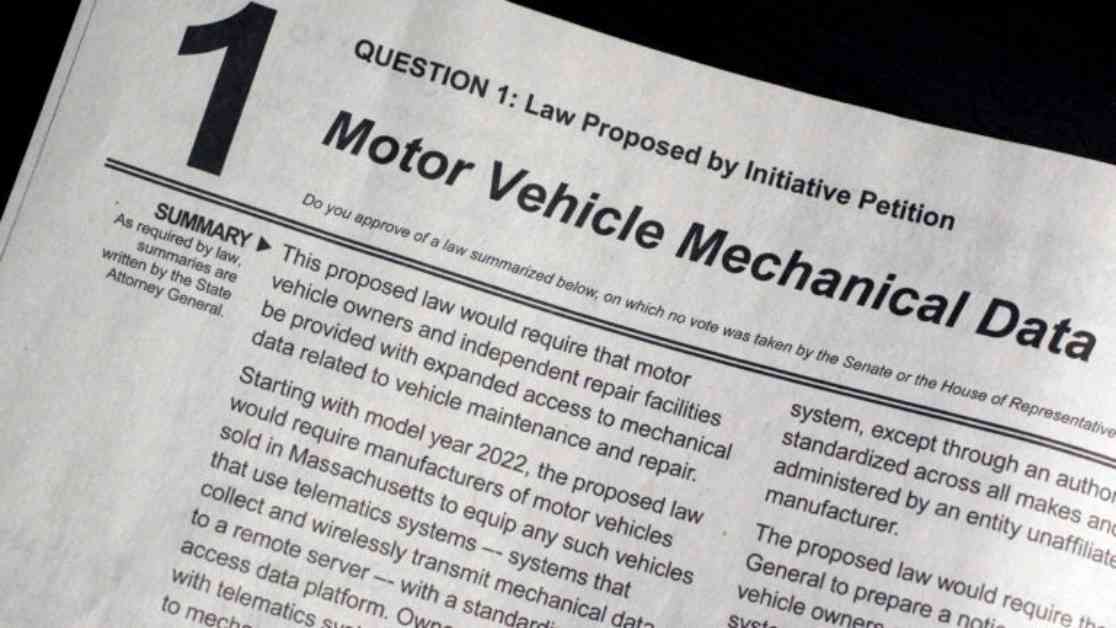Legal Victory Paves Way for Right to Repair Law
In a groundbreaking turn of events, Judge Denise J. Casper made a historic decision by dismissing the lawsuit brought forth by the car manufacturers’ trade group, ultimately paving the way for the implementation of the long-awaited Right to Repair Act. This momentous victory comes after years of legal battles and obstacles faced by the automotive industry against a law that was resoundingly passed by Massachusetts voters over four years ago.
The Right to Repair Act, which made its way onto the 2020 ballot and secured widespread support, is a crucial piece of legislation that mandates car manufacturers to share essential information about a vehicle’s mechanical well-being with its owners. With the advancement of technology, modern vehicles are equipped with sensors that can detect issues such as worn-out brake pads or low tire pressure. Currently, this vital telematics data is automatically transmitted back to the dealer, limiting the options available to car owners in terms of servicing their vehicles.
Imagine being a car owner who wants the autonomy to choose where to repair your vehicle without being restricted by corporate interests. This law is designed to ensure that every individual has the freedom to select the repair facility of their choice, democratizing access to crucial vehicle data. By creating a platform for vehicle owners to access their car’s telematics data starting from model year 2022, owners can now share this information with independent repair shops, breaking away from the traditional dealership reliance.
Legal Battles and Industry Opposition
Judge Denise J. Casper’s final dismissal of the lawsuit on Tuesday marks the culmination of a protracted legal dispute initiated by the Alliance for Automotive Innovation, the trade association representing car companies. This lawsuit, which has seen numerous delays in reaching a verdict, was centered around concerns related to cyber security, alleged lack of time for compliance with the new access requirements, and claims that the initiative may conflict with federal law.
Legal counsel Edward Colbert, representing the Massachusetts Right to Repair Ballot Committee, emphasized that the lawsuit was merely a stalling tactic and that the law in question does not infringe upon any federal regulations. The Right to Repair Act has been deemed to be in alignment with existing federal laws, including the Motor Vehicle Safety Act and the Clean Air Act, and should be enforced without delay.
Tommy Hickey, the executive director of the Right to Repair Coalition, hailed the dismissal of the lawsuit as a significant victory for consumers and local independent repair shops. By granting individuals the authority to access and control their vehicle’s data and repair information, this law shifts the power dynamics away from profit-driven manufacturers towards consumer empowerment.
As 2022 vehicles begin to emerge from their warranty periods, this legal victory could not have come at a more opportune time. Car owners can now look forward to a future where they are no longer beholden to manufacturers who prioritize financial gains over consumer choice. With the Right to Repair Act in place, individuals can truly become the gatekeepers of their vehicle’s well-being, ensuring a more transparent and equitable automotive repair landscape.
Sign up for the Today newsletter to stay informed and start your day with all the essential updates delivered directly to your inbox every morning.






